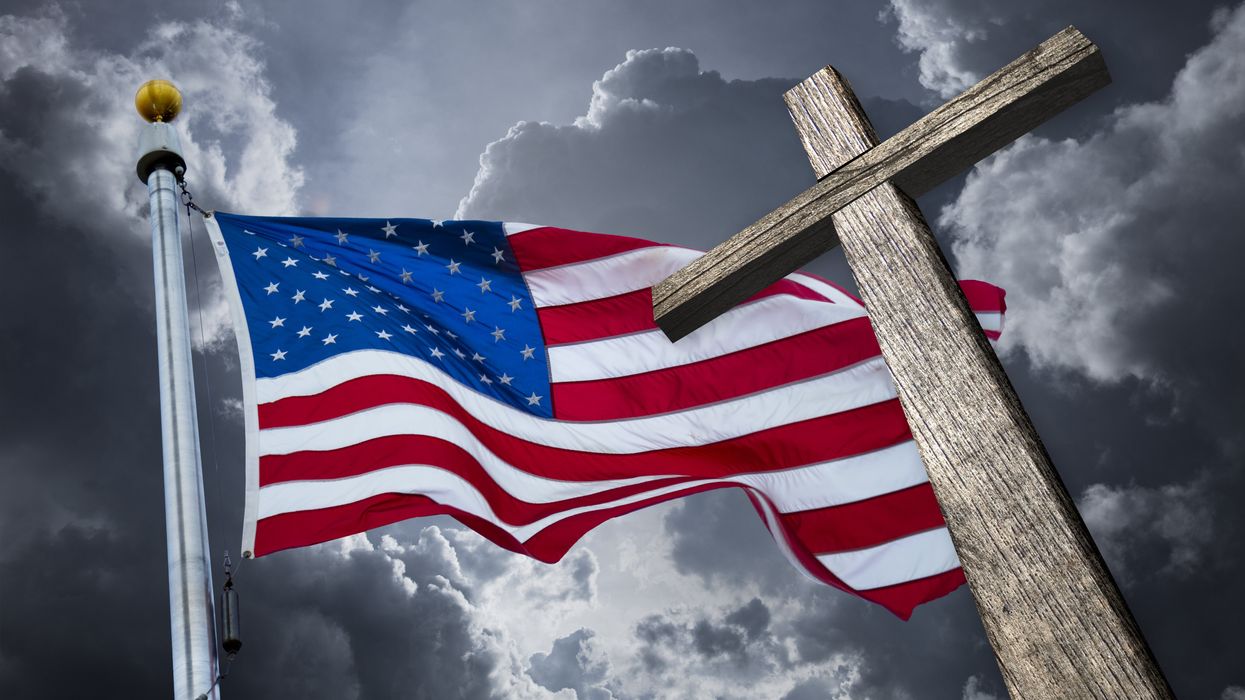Young is a retired pastor in the Presbyterian Church.
My father, who served as a Navy officer in the South Pacific, shared fascinating World War II stories with me. With ensuing history classes, I became troubled by America’s slow response to Hitler’s atrocities in Europe and incredulous that Christians in Germany blindly followed their deranged dictator.
While pursuing a master of divinity degree at the University of Dubuque Theological Seminary, I took a course titled “Christianity and the Holocaust.” I learned that Hitler’s strategy to build loyalty and support within German churches was masterful. He encouraged kids in his German youth organizations to get their families to attend Sunday worship with them. Church attendance skyrocketed; pastors were thrilled. Eventually, Germany’s government rule and religion became one.
We know the rest of the story of Hitler and his followers’ persecution of Jews, Jehovah’s Witnesses, Blacks, disabled people, gays, trade unionists and people who were of Roma, Sinti and Slavic descent. Sadly, only a handful of German clergy confronted Hitler.
It’s now 34 years since my seminary graduation. I feel called to stand with other pastors throughout America in speaking out against another movement seeking to fuse government and religion.
The threat is Christian nationalism.
Christian nationalism wants to bring America’s church and state into one entity — just like Hitler did — which is incompatible with the most basic principle of our democratic framework. I am deeply concerned about this cult-like movement.
A plethora of news stories and broadcasts have revealed America now has many political figures whose words and actions are those of a Christian nationalist. The movement is dangerous in its assertion that God has a special bond with the United States and with selected politicians. It is unwise, undemocratic and destructive.
A national survey conducted jointly by the Public Religion Research Institute and the Brookings Institution found 64 percent of white evangelical Protestants are Christian nationalism adherents or sympathizers to the movement. Thirty-five percent of Americans have never heard of the term “Christian nationalism.”
Christian nationalism is fueled by white supremacy — the belief that white people are superior to those of other races and should dominate them. They are taught to shun LGBTQIA persons, to embrace dominance of men over women, and to believe that only Christianity — one of 10,000 distinct religions — should rule Congress, state governments and the court system.
The movement has been percolating for decades among a surprisingly large pool of white Christians who feel they’re called by God to rise up and defend themselves against anyone who is different. The Jan. 6, 2021, insurrection on the U.S. Capitol was Christian nationalism exemplified.
The most comprehensive research study to date of American religion was conducted by sociologists’ Andrew Whitehead and Samuel Perry. Their study, with over 16,000 people, noted Christian nationalism paradoxically holds America as sacred in God’s sight. It baptizes authoritarian rule. It sanctifies the preservation of order with righteous violence. It glorifies the patriarchal, heterosexual family as not only God’s biblical standard, but the cornerstone of all thriving civilizations.
Christian nationalism is a political movement couched in religious language. Its ultimate goal is earthly power — control over people and issues they don’t like — which is the exact opposite of what the gospels teach us. Jesus came as a suffering servant who gave his life for all of us, whether we’re rich, poor, gay, straight, Black, white, Brown, of any culture, of any creed and of any language.
Christian nationalism doesn’t reflect what Jesus taught and how he lived his life. The Bible’s overarching theme is God’s love for all of us — regardless of our skin color, political affiliation, economic status or gender identity. While I’m a Christian, I believe God’s love is extended to all people. The gospel (which means “good news”) is always a gift. It should never be used as a weapon.
What can we do? Each of us must think carefully about where our greatest allegiance lies. Matthew 22:22 quotes Jesus saying, “give to Caesar what is Caesar's, and to God the things that are God’s.” We can be Christian and still be patriotic, which — simply stated — is love for one’s country. Nationalism is putting our highest allegiance to our country, especially its historically dominant ethnic, social, and cultural classes. Politics usurps what belongs only to our Creator.
Between now and Nov. 5, Americans cannot be misled by self-serving politicians or Christian nationalist clergy like most German Christians were. Christian nationalism flagrantly distorts Christianity and purposely puts down people of color, the disabled, those who are LGBTQIA ... just like Hitler did.
I pray that we, as Americans, will continue to respect democracy, non-violence, and the critical separation of religion and government as we demonstrate love for all our neighbors.



















Trump & Hegseth gave Mark Kelly a huge 2028 gift